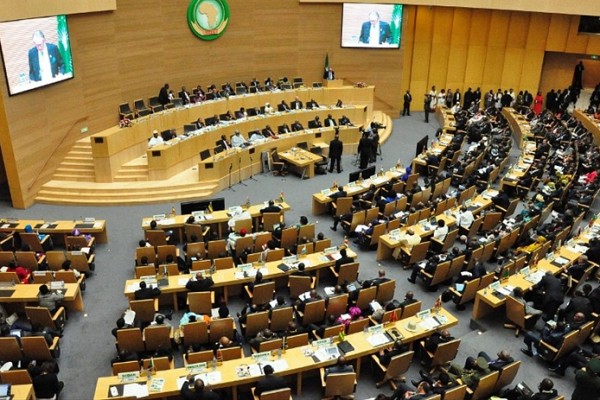AU PSC Reiterates Relevance of Skhirat, Bouznika Processes to Resolve Crisis in Libya
The African Union’s (AU) Peace and Security Council (PSC) reiterated the relevance of the Skhirat and Bouznika processes to resolve the Libyan crisis. In the communiqué issued at the end of its 1244th meeting, held on November 12, the AU PSC reiterated that “the Skhirat Agreement, signed on December 17, 2015, resulting from the reconciliation process between the Libyan parties, under the auspices of the UN, remains one of the foundations and credible frameworks for a lasting political solution to the Libyan crisis.” The AU PSC also took note of the “considerable progress achieved in the preparations to conduct the electoral process in Libya during the meeting of the Joint Commission between the House of Representatives and the High Council of State, held from May 22 to June 6, 2023 in Bouznika, Morocco, which resolved disagreements and formulated the laws governing the forthcoming presidential and parliamentary elections in Libya.” During the AU PSC meeting, the Kingdom’s Permanent Representative to the AU and UNECA, Mohamed Arrouchi, stressed the importance of dialogue and consultation between the various Libyan stakeholders as the only way out of the crisis. He also recalled Morocco’s crucial role in resolving the Libyan conflict, mainly by hosting the negotiations that culminated into the Skhirat Agreement in December 2015. Arrouchi had highlighted the importance of the results achieved at the Joint Commission between the House of Representatives and the High Council of State, held in Bouznika from May 22 to June 6, 2023. These discussions helped forge a consensus on the electoral laws and resolve the points of divergence essential to the organization of presidential and parliamentary elections in Libya. The meetings held by Morocco between the Libyan parties since the outbreak of political conflict in this brotherly country are part of the Kingdom’s sincere efforts to resolve the crisis peacefully and without foreign interference, he said. The Moroccan diplomat stressed that the conditions are currently ripe in Libya for progress in the political process, and that the only way to resolve the issue of legitimacy is through a transparent and inclusive electoral process.

